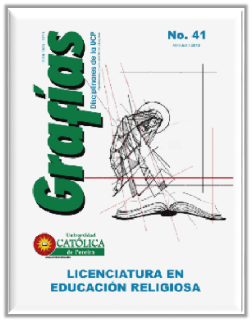Building a path to knowledge in the bachelor of religious education.
DOI:
https://doi.org/10.31908/grafias.v0i41.1185Keywords:
Knowledge, Bachelor in Religious Education, student, learning, self-training, person, cognition, othernessAbstract
When solving the question of how the student learns from the LER, this reflection focused on recognizing that the integration of different areas such as philosophy, psychology, oral and written expression, philosophical anthropology and pedagogical models, it occurs in a situation and this fact is fundamental. Previous learning will also have an important role as well as experiences, since memory processes allow recall to the extent that the new information is linked to the one already possessed by the student. The unlearning, the cognitive processes, the vocation, the ability to express themselves, are some of the aspects addressed to account for the human capacity to self modify and therefore build knowledge.
References
Barón, R. (1996). Psicología. Su naturaleza,campo de estudio y sus métodos. México:Prentice -Hall Hispanoamericana.
Contreras, M. (2005). Documentos de trabajodel indes. Aprender a desaprender en labúsqueda de un aprendizaje transformativo.Apuntes sobre la capacitación de gerentessociales. Disponible en http://www.iadb.org/wmsfiles/products/publications/documents/2220359.pdf
Educatina. (2011). Sócrates Filosofía[Video]. Disponible en: https://www.youtube.com/watch?v=CkqHg4EaaZY
García, J. (2010). Antropología filosófica.Una Introducción a la Filosofía del Hombre.Pamplona, España: Ediciones Universidadde Navarra.
Platón (1985). Apología de Sócrates.Madrid: Alambra.
Radio Vaticano (2016). PapaFrancisco: maestros con artesanosde humanidad y constructores de pazy encuentro. Disponible en http://es.radiovaticana.va/news/2016/03/14/-papa_francisco_maestros_humanidad_paz_encuentro/1215165
Samper, J. (2006). Los modelos pedagógicos.Bogota: Aula Abierta Magisterio.
Vicerrectoría académica. (2015). Propuestapedagógica y colectivos. Disponible enhttp://www.ucp.edu.co


